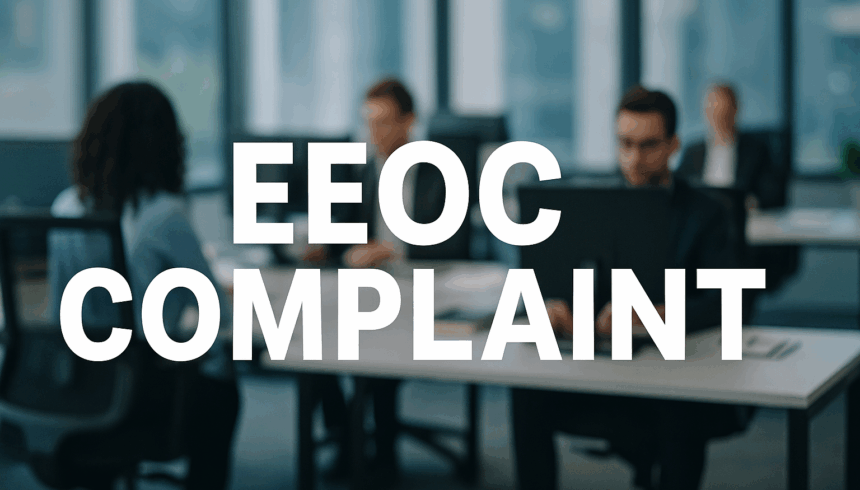
 By Evan Lange
By Evan Lange
Before proceeding, please review the legal disclaimer.
Filing a complaint with the Equal Employment Opportunity Commission (EEOC) can feel intimidating. But you’re not just making noise—you’re triggering a formal legal process that can carry real consequences for your employer.
So how does an EEOC complaint actually affect a company? Let’s walk through what happens, what employers fear most, and how your action could protect others too.
Once a complaint (called a “charge of discrimination”) is filed:
Your employer is notified—they receive a copy of the charge.
The EEOC reviews the complaint and may:
Offer mediation
Request a formal response from your employer
Launch an investigation
The EEOC may interview witnesses, gather documents, or even visit the workplace.
If they find evidence of discrimination, the EEOC may:
Encourage settlement
File a lawsuit on your behalf
Issue a “right to sue” letter so you can take legal action
An EEOC complaint can lead to:
Employers may end up paying:
Back pay
Compensatory damages
Legal fees
Lawsuits and EEOC actions are public record. No company wants headlines reading:
“Houston Tech Firm Sued for Racial Discrimination”
Government agencies and some private partners avoid businesses involved in discrimination claims.
If found liable, a company may be required to:
Update its anti-discrimination policies
Implement training
Submit to future monitoring
Pattern or Practice Claims: If more employees come forward, the EEOC can pursue broader action.
Retaliation Findings: If they retaliate against you after your complaint, that can double the legal trouble.
Lawsuits and Class Actions: An EEOC complaint can snowball into larger litigation.
Many employers settle early to avoid drawn-out legal drama.
Yes—and it often leads to positive change.
By filing a complaint, you:
Hold bad actors accountable
Protect coworkers facing similar treatment
Trigger investigations that improve workplace culture
“Lisa,” a Latina sales rep in Dallas, was passed over for promotions while less experienced white coworkers advanced. After filing an EEOC charge, her company settled the case—and implemented new DEI training company-wide.
You’re not alone. But it’s illegal for employers to retaliate against someone who files a discrimination complaint.
Retaliation can include:
Firing
Cutting hours
Changing duties
Hostile behavior
If it happens, you can file a separate EEOC charge or pursue legal action.
At The Lange Firm, we:
Help Texas employees file EEOC or TWC complaints
Represent clients through investigations, mediations, and lawsuits
Fight for fair compensation and policy reform
If you’re facing discrimination, we’re here to protect your rights and stand by your side.
Filing an EEOC complaint is more than paperwork—it’s power.
It holds employers accountable, protects future employees, and can lead to real change. If you’re ready to speak up, contact The Lange Firm today.
Follow our newsletter to stay updated.

2025- The Lange Firm all rights reserved.

Mr. Evan B. Lange is the attorney responsible for this website. | All meetings are by appointment only. | Principal place of business: Sugar Land, Texas.
The information you obtain at this site is not, nor is it intended to be, legal advice. You should consult an attorney for advice regarding your individual situation. We invite you to contact us and welcome you to submit your claim for review. Contacting us does not create an attorney-client relationship. Please do not send any confidential information to us until such time as an attorney-client relationship has been established.